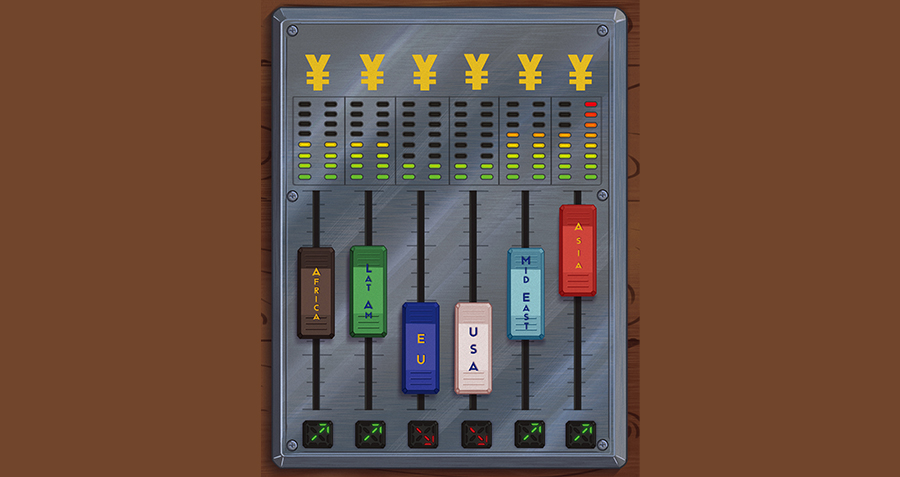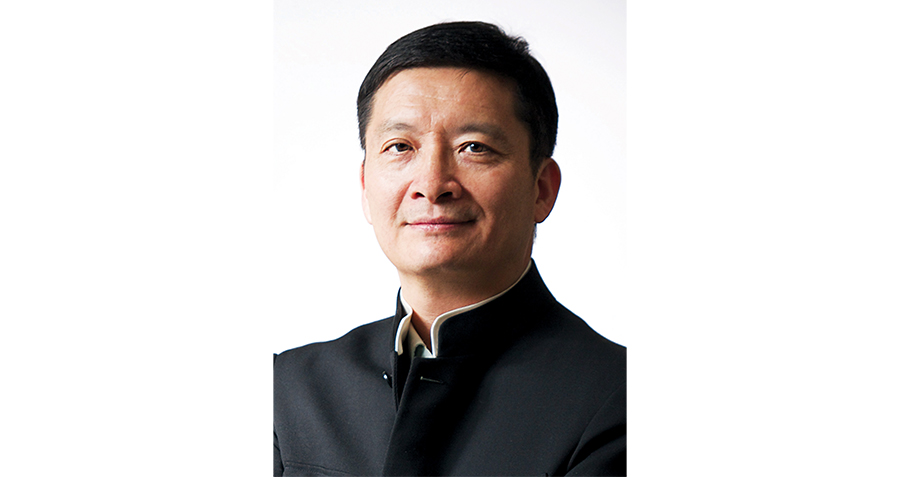Bill Bishop was once called “the China hand’s China hand.” Co-founder of the stock market news website MarketWatch, where he worked until the company’s 2004 sale to Dow Jones, Bishop lived in Beijing from 2005-2015, a span that included the Beijing Olympics, the Global Financial Crisis, and the rise of Xi Jinping. Long a commentator of China affairs, Bishop started the Sinocism newsletter in 2010, which is read by journalists, policymakers, analysts and diplomats—more than 27,000 people in total.
In this interview, Bishop talks about how China’s relationship with the world has changed during its ascendance to second-largest economy in the world, as well as some of the serious economic challenges it faces today, including the current backlash against globalization. But along with that, he also discusses the many bright spots, and the hazards of getting caught up in what can be a biased and negative news cycle mentality.
Q. You lived in China during a very eventful period. How did China’s relationship with the world change along with the various developments that you witnessed?
A. I think that China is far more integrated with and impactful on the world than it was [in 2005]. China is a much more powerful country now across pretty much every dimension, and so its influence is felt much more profoundly globally, both good and bad. I think that along with that increase in power and the continuation of China’s rise, that now versus ten or 11 years ago, China looks to a lot of countries like a bigger opportunity economically, but also a bigger challenge… from a geopolitical perspective. And that’s not just from a US perspective. All over the Asian region, Europe, the US, there’s a lot of good that has come with the rise of China, but there’s also a lot of concern and a lot of problems, too.
The other [big change] is that the economy looked like it was potentially on a pretty healthy trajectory in 2004, 2005. Not great, but it had more potential. Now when you look at China’s economy, it’s a lot bigger, but it’s got a lot more problems and a lot more debt and so it is a bit harder to be as optimistic as people were back in ’04, ’05, and certainly harder to see the low-hanging fruit that’s going to drive a lot of economic growth. And the Chinese themselves say this. This is a much more difficult time for the economy and for reforms.
Q. In any given news cycle, there’s a raft of negative or alarming stories about China’s economy, from rising debt to the aging population and many more. How would you rank these problems in terms of importance?
A. They are all massively complex and difficult problems. I think the thing that is probably the most pressing at this point, and certainly potentially the most constraining when it comes to near- and medium-term policy, is the excessive growth in debt and the mal-investment. If there is something that ties it all together—and this is something that is not controversial in China, it is something the party says itself—is that reforms are not complete, and that you’ve got this kind of semi market-based economy with too much and lately growing interference and control from the party-state… I think when you look at the mal-investment, that comes down to again too much party-state interference in the economy. The Third Plenum talked about having the market being the deciding factor, but in fact it has seemed to have gone the opposite direction since then because the party-state is much more focused on control right now. And I think that is ultimately going to be… the biggest barrier, or the most likely element that derails or significantly hampers the reform efforts.
Q. So what should we make of those mixed messages?
A. Well, the Chinese Communist Party is always good at contradictions. When it comes to SOEs, it’s not just about having them large, it’s actually about putting the party back in command. The central SOEs, all big decisions at the board level are supposed to be approved by the party committee, and so it is reinserting the Communist Party back into business and society in a way that it had not been for a long time… I think they see enough problems in society and in the economy that their natural instinct is to go back toward more control. And this is the main contradiction. They can keep going for a while [this way], but they are not going to hit their maximum. It is going to hinder hitting the maximum potential for the Chinese economy.
It’s also not a binary success or failure, it is more of an ‘okay, so it won’t be as good as it could be.’ But at the same time I think the party would argue that if they released control too much then it will be chaotic. And so the solution is to basically tighten the party and muddle through, which they have been doing for quite some time.
Q. What bright spots would you identify?
A. In the current media environment in the West, you mention some bright spots and you get shot down as like a reform optimist or naive. The internet economy is a bright spot. It’s still relatively small, but it is a remarkably vibrant, robust and quickly-growing place. Just look at Alibaba’s [growth] numbers. The consumer sector is not growing as fast as people thought it was going to be, but it is still growing, and so there is still a lot of opportunity in the consumer area, and certainly from a perspective of investment in businesses. Much of China is still relatively poor, and so there are still lots of opportunities, and the consumer sector is still backwards in a lot of areas.
As difficult as the economy can be, and as bad as the situation looks, and as negative as the commentary is that you get in Western media, there are still plenty of opportunities in the Chinese economy. Certainly if you go there and spend time in the big cities like Beijing and Shanghai, you don’t feel like the place is in a depression or about to collapse. It’s the opposite.
Q. You have been back in the US, in Washington DC, for about a year now. Has the distance given you a different perspective?
A. You know, it is difficult to avoid the DC groupthink and getting in the DC fishbowl. But the flip side is, through the Sinocism newsletter, regularly having lots of interesting conversations [with people about China].
One thing that I think is important for American businesses is that I think there are some [business leaders] that have not quite grasped how much the attitudes in DC have changed… I think you are a going to see a much harder approach to China, and a greater willingness to tolerate friction and conflict. I don’t mean military, kinetic conflicts, but just much more willingness to push hard on China to protect American interests, something that Obama has not [done] in some areas. From that perspective, it has given me a better insight into how the US is going to deal with China. I think there’s a desire in Europe and other parts of Asia for the US to take a tougher stance toward China. And if the US does it, other countries may follow.
Q. The recent past has seen a marked move away from globalization, at least in rhetoric, with countries talking about trade barriers and so on. Why is that happening now?
A. I think it ties into the broader questioning of whether or not globalization and trade have worked for everybody. And this is why you see Brexit, why you see various populist movements in Europe, and why you see Trump. There have been a lot of losers to globalization, and one of the key components of globalization has been the rise of China and trade with China. But I think that the benefits have accrued to a smaller number of people than were told were going to be getting the benefits. And then you look at the way that China, when it comes to free trade, [restricts investment]. People ask, if we can’t go buy a media company or a chip company in China, why can China buy a media company in the US, or a chip company in Germany? You are going to see a lot more discussions around reciprocity.
You also have sectors, for example semiconductors, where for a long time China has been trying to build its own semiconductor industry to be able to basically indigenize the industry so they no longer have to use foreign chips. We are seeing this across the tech sector, across the Chinese IT stack … They have actually said they want to replace Western firms. Part of it is just listening to what the Communist Party says. Under Xi, of course, the party is much more robust… If you are a responsible politician and you couple that with what is going on in your own country, conversations around dissatisfaction with globalization, the problems that foreign companies are facing in China anyway, it’s really hard to make the case that we should continue business as usual. It certainly feels like the Chinese are getting a much better deal than the rest of us.
Q. But do you think the reaction thus far has been the correct one? Was Brexit the right way to react?
A. No! But I think that, for example, it would be great if the US-China bilateral investment treaty would pass. I think it’s a long way away, longer than people think. The problem is that trade is very important, but it does have to be within rules, and China can’t have its own set of rules and then play by the rest of the world’s rules. There is some dissatisfaction with parts of their compliance with the WTO.
You asked earlier about what are the good spots. When you look at the service sector, and you look at things like media and the internet, those are basically closed to foreign investment, and those are some of the most exciting parts of the Chinese economy. And so something needs to change. If those sectors are blocked to foreign companies, then the Chinese companies should have some limitations on what they can do outside of China. Otherwise it is fundamentally unfair, and it is not like China is some two-bit little country where it doesn’t matter. They are incredibly smart, incredibly wealthy, incredibly large and have much more ability to have impact than pretty much any other country in the world.

















